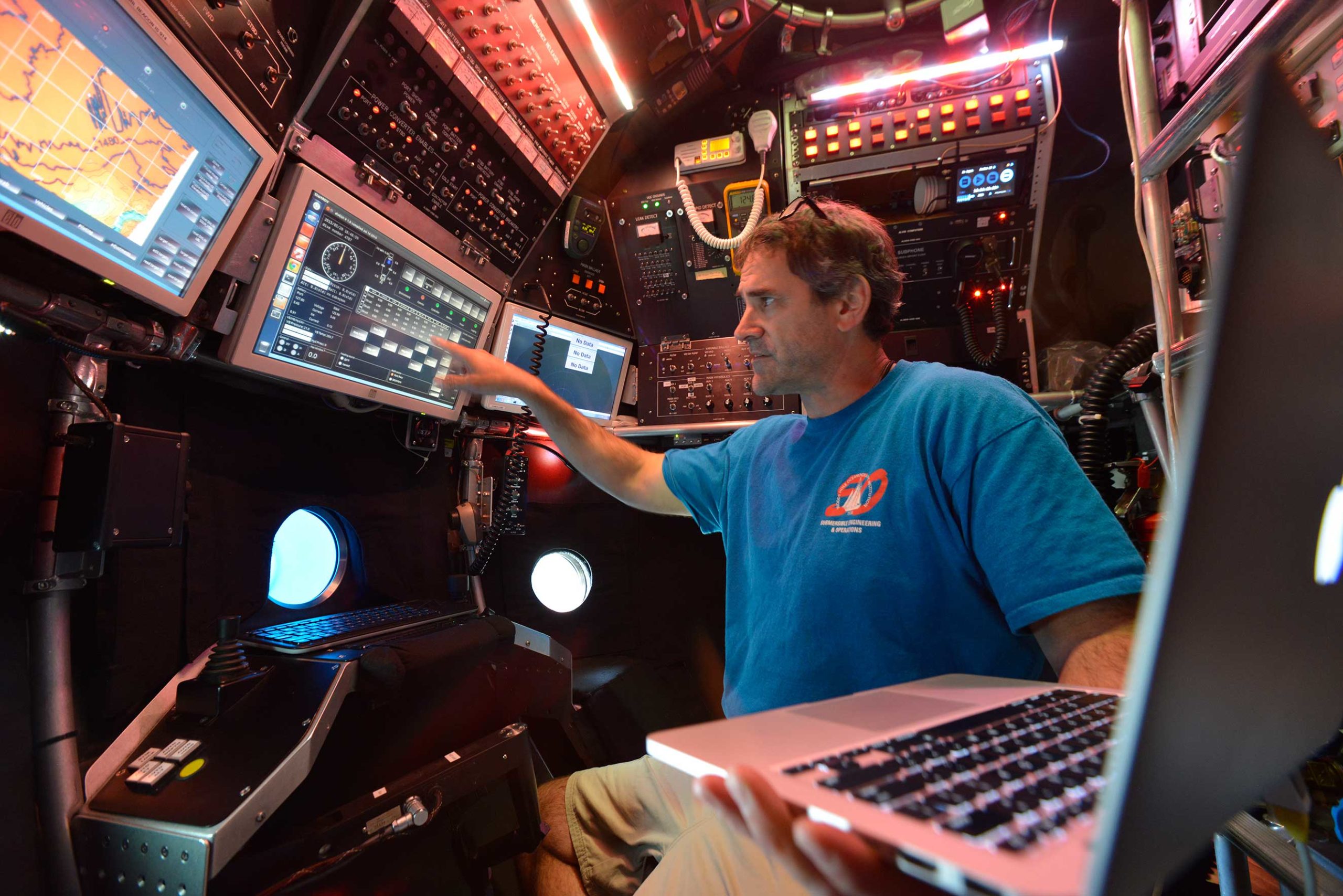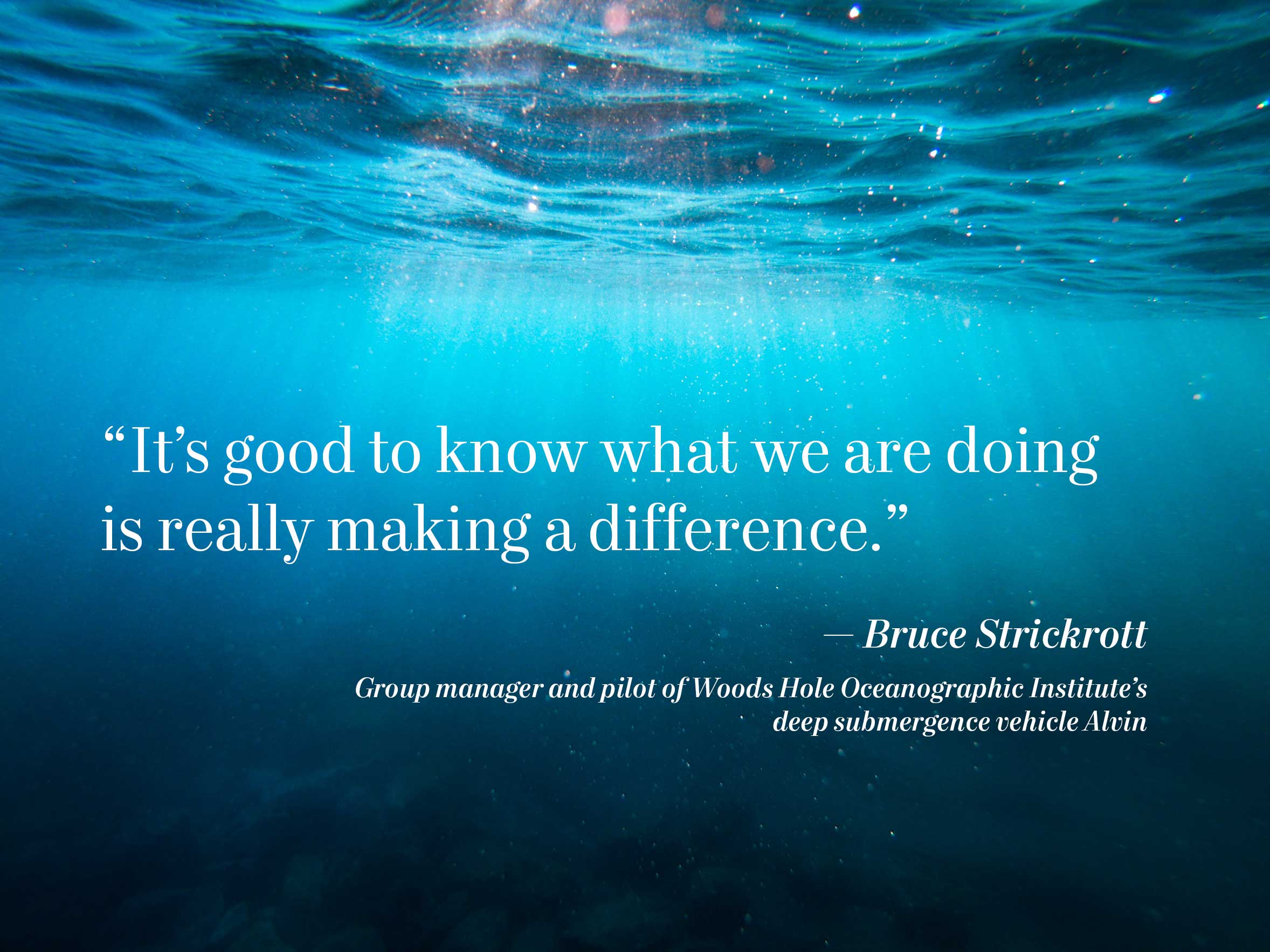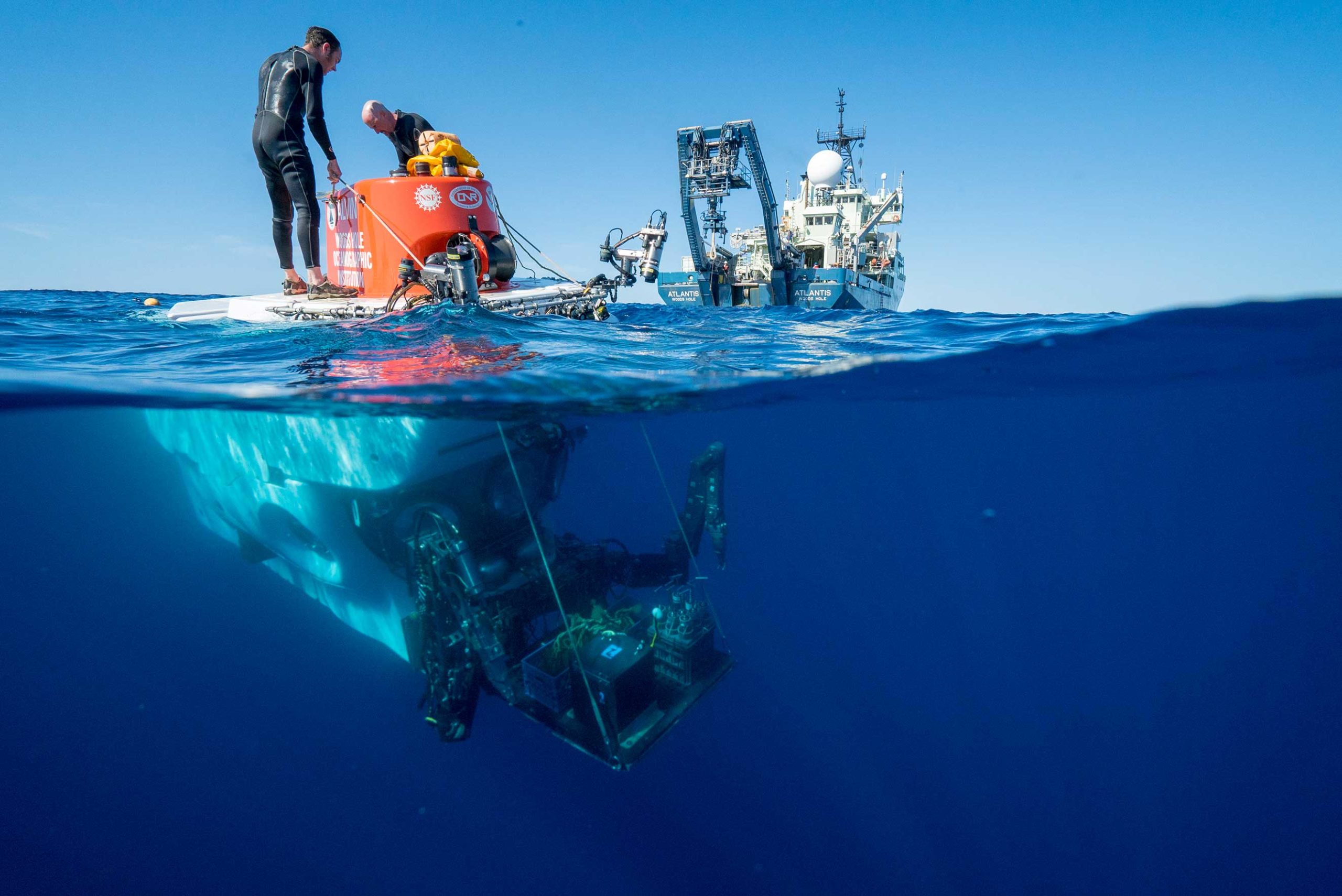By Kelly Chase - Photographs Courtesy of Woods Hole Oceanographic Institution
Bruce Strickrott is the group manager and pilot of Woods Hole Oceanographic Institution’s deep submergence vehicle Alvin. The submarine had a brush with stardom in the 1980s when it was the first human-occupied vehicle to explore the Titanic. Strickrott joined its crew in the 1990s and has been part of over 80 research trips and 380 deep-sea dives aboard Alvin. “Alvin has led the way to understanding what the deep ocean is like, and it continues to discover things at the bottom of the ocean that impact the daily lives of everyone,” Strickrott says.
For up to eight months of the year, Strickrott is at sea. During dives, he’s part of the team of three aboard the 23-foot-long Alvin, and the rest of his time he spends on its host ship, Atlantis, which is 274 feet from bow to stern. On some missions, the team of close to 50 doesn’t see land for four weeks at a time. On many journeys, the hours are long and the days blend together. Nonetheless, these seafaring professionals have systems in place that allow them to be productive, keep their sanity, and even enjoy themselves. In fact, the former navy pilot says he thrives in the at-sea environment. “I’ve spent a lot of time out there, and I happen to really enjoy it,” he says.
When Strickrott and the teams from Alvin and Atlantis returned from their latest research trip in March, they found themselves in familiar territory, albeit a new kind of confinement on land with the state’s stay-at-home order. We decided to speak with Strickrott, who was in Woods Hole, about how he stays active, productive, and happy while out at sea in the hopes that his experience would enlighten others who are trying to work, exercise, spend time with family, and remain pleasant in confined quarters.
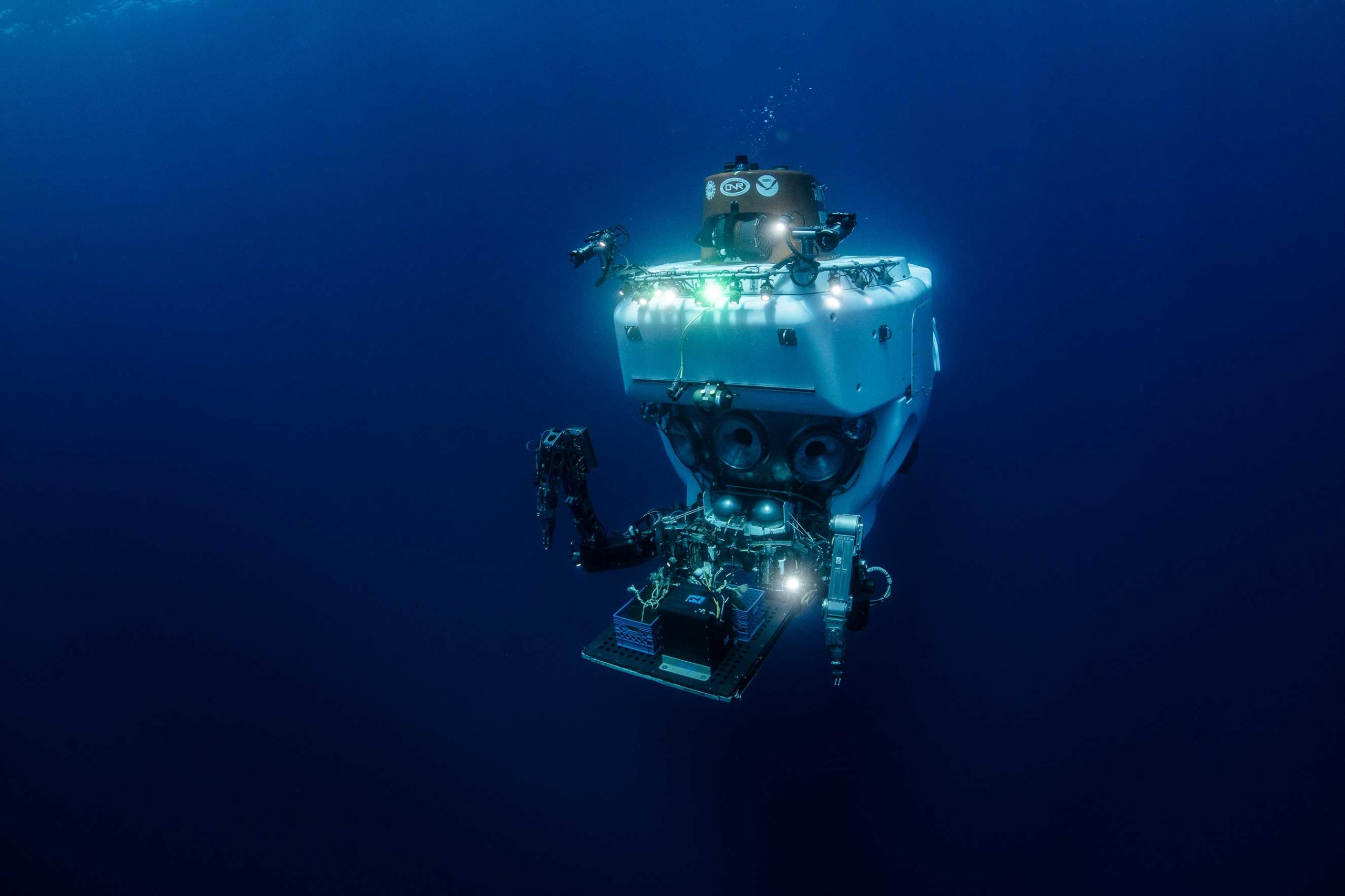
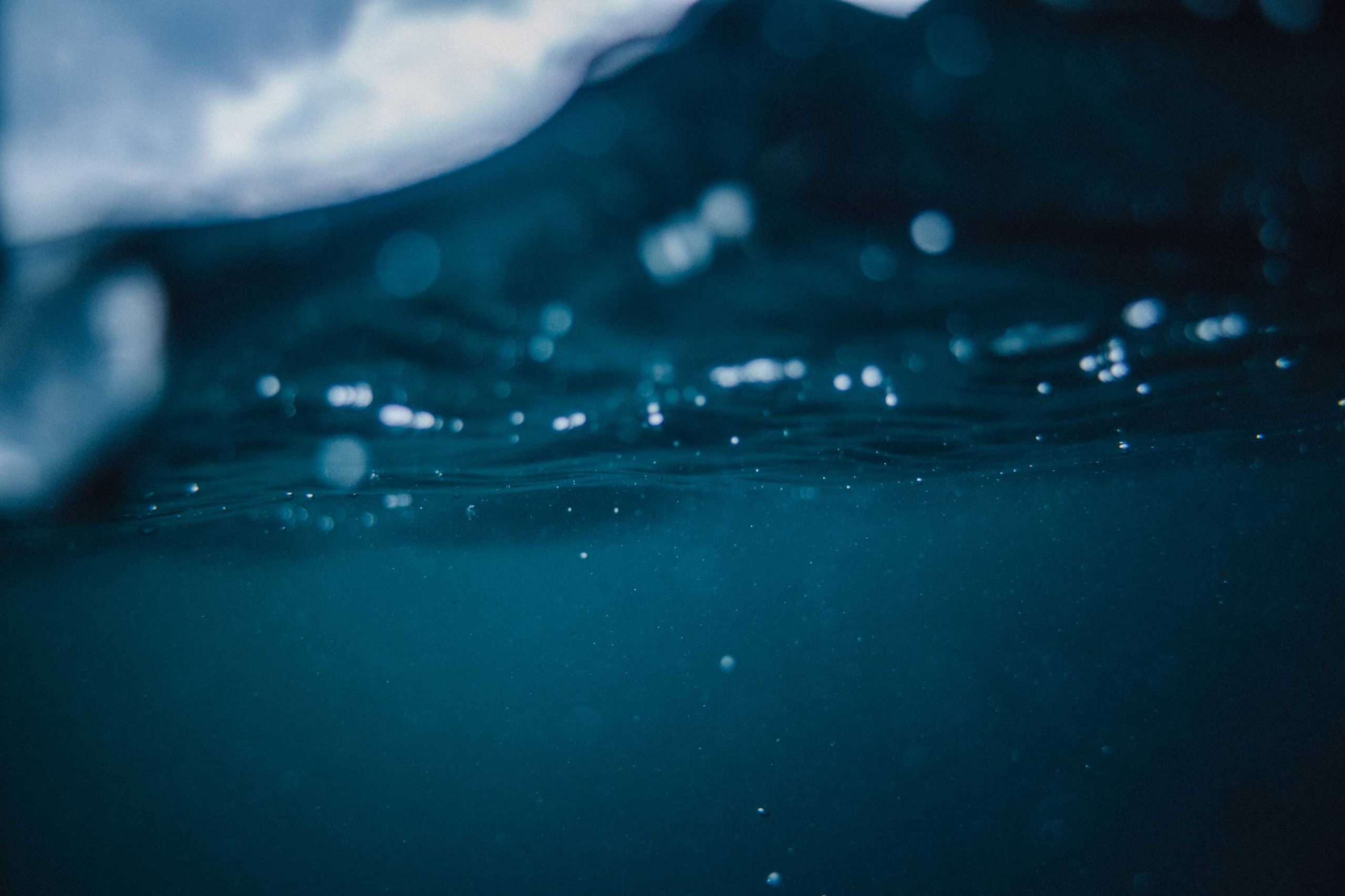
Establish Healthy Routines
“Ship life revolves around routines,” says Strickrott. Humans are creatures of habit and defined routines at sea keep the crews on task and on schedule. Every day, the crew is up at 5 a.m. to prepare for the 8 a.m. launch of the Alvin. Every night, the sub returns between 4 and 5 p.m. “In between, the team on the ship has work to do, but they also have time to take a breather—do their laundry, exercise, read, or do whatever they need to do,” he says. When the sub comes back, the teams perform service and maintenance tasks and often work until 9 p.m. “Mixed into the day are set meal times. Breakfast is at 7 a.m., lunch at 11:30 a.m., and dinner is at 5:30 p.m.,” he says.
For those who have found themselves living and working in the same space for an extended period of time, establishing routines can be essential to productivity. “The routines that people had before [are no longer possible], and those who are doing well have established new routines and have found time for the things that are important to them,” says Strickrott.
While at home, try to establish a few routines, such as waking up at the same time every day, starting work at the same time, and making time for breaks. Think of the activities that make you feel good—making a healthy breakfast, meditation, or reading—and fit at least one of those activities into your day. (Interested in meditation? Healing Therapies Cape Cod is hosting online meditation classes.)
Find Purpose
“Everyone on board has a role to play,” says Strickrott. No matter how large or small everyone’s daily tasks play important roles in the greater mission of the ship. This collective purpose keeps the teams motivated at sea. One recent voyage in December, 2019, and January, 2020, took the team of close to 50 scientists, crew, and staff to an underwater volcano in the middle of the Pacific Ocean, where thousands of feet below the surface, they examined life sustained by the energy rather than light. In fact, information that was gathered on this trip is linked to the testing used for diagnosing novel coronavirus. “It’s good to know what we are doing is really making a difference,” says Strickrott.
Feeling useful is essential for all of us. Being useful while at home could mean completing a project you’ve been meaning to get to, starting to write down memories for that book you’ve been thinking about, or reaching out and seeing if there are safe ways that you can help a friend or your community. In the words of Ralph Waldo Emerson, “The purpose of life is not to be happy. It is to be useful, to be honorable, to be compassionate, to have it make some difference that you have lived and lived well.”
Remove Distractions
“You go to sea for months at a time, and when you come back it is amazing how much noise there is,” says Strickrott. “Getting away from that is really healthy.” Life at sea aboard a motorized ship isn’t exactly quiet. “But we are not immersed in the noise of society, that is a different kind of noise,” he says, noting the constant news cycle. “We are away from that, which makes it easier to focus on the long hours and routine of being at sea.”
With distractions at our fingertips, it can be hard to disengage, but ship life and life in quarantine have a similar demand for quiet. Shut off the television and take in the quiet of your surroundings. Find some mindful activities, such as yoga or drawing—Cape Cod Cultural Center is offering online courses for both. For those wanting to still be connected, here’s a quiet space for you online: “The Calm Place.”
Break for Perspective
Strickrott says the navy turns off lights on its ships at night for strategic reasons, but the result is a clear view of the night sky. He says that everyone is busy at work aboard the Atlantis, but they often remind each other to take breaks to marvel at the beauty of their surroundings. “We’re all pretty regimented, but you really have to take time to get up on deck to take in the sunrise or the sunset,” says Strickrott. “The night sky from the ship is also worth seeing.”
While the Atlantis is out in the middle of the ocean, creatures from below, such as pilot whales, will pass by. “There are times in the middle of the Pacific when the seas are flat and the sun is setting and reflecting off the water like a mirror,” he says. “In these times, the sky takes on a purple color and the scene is pretty amazing.”
At home this could mean stepping outside at night and looking up at the stars or getting outside daily for a walk or to sit in the sun. There are apps, such as Starwalk and Skyview, that will help point out constellations and planets.
Ships Return to Harbor
When a mission is complete, the Atlantis and Alvin return to port. Strickrott says that the smell of grass is a great comfort when he steps off the ship. The smell of grass signifies land, solid ground, and home. “When we are at sea for long stretches, it is hard not being able to see family and loved ones,” says Strickrott. “I know a lot of people are missing family right now.” Fortunately, people have the ability to keep in touch through video chats, phone calls, and texts. Checking in with loved ones is essential when at sea and in quarantine.
From your home base, regularly check in with loved ones through video calls. Use snail mail to send cards and drawings to friends and family members. Over video calls, play games like trivia (via Random Trivia Generator) or Pictionary (via Random Word Generator).
And remember, spring is in the air here on the Cape and islands—and the smell of freshly cut grass is all around us.

